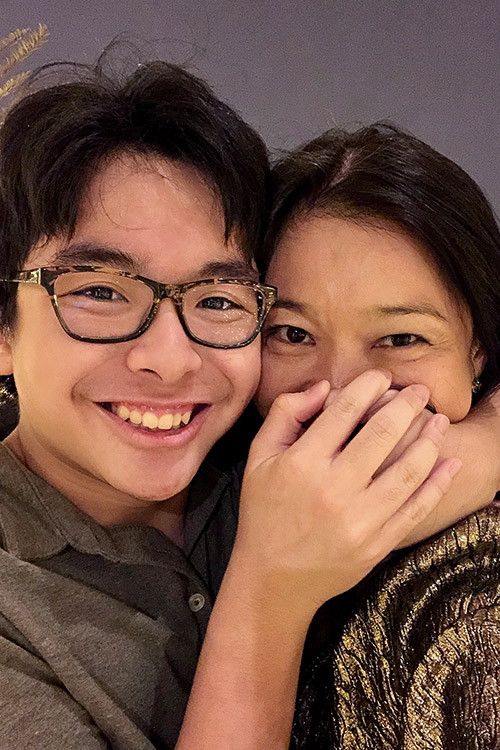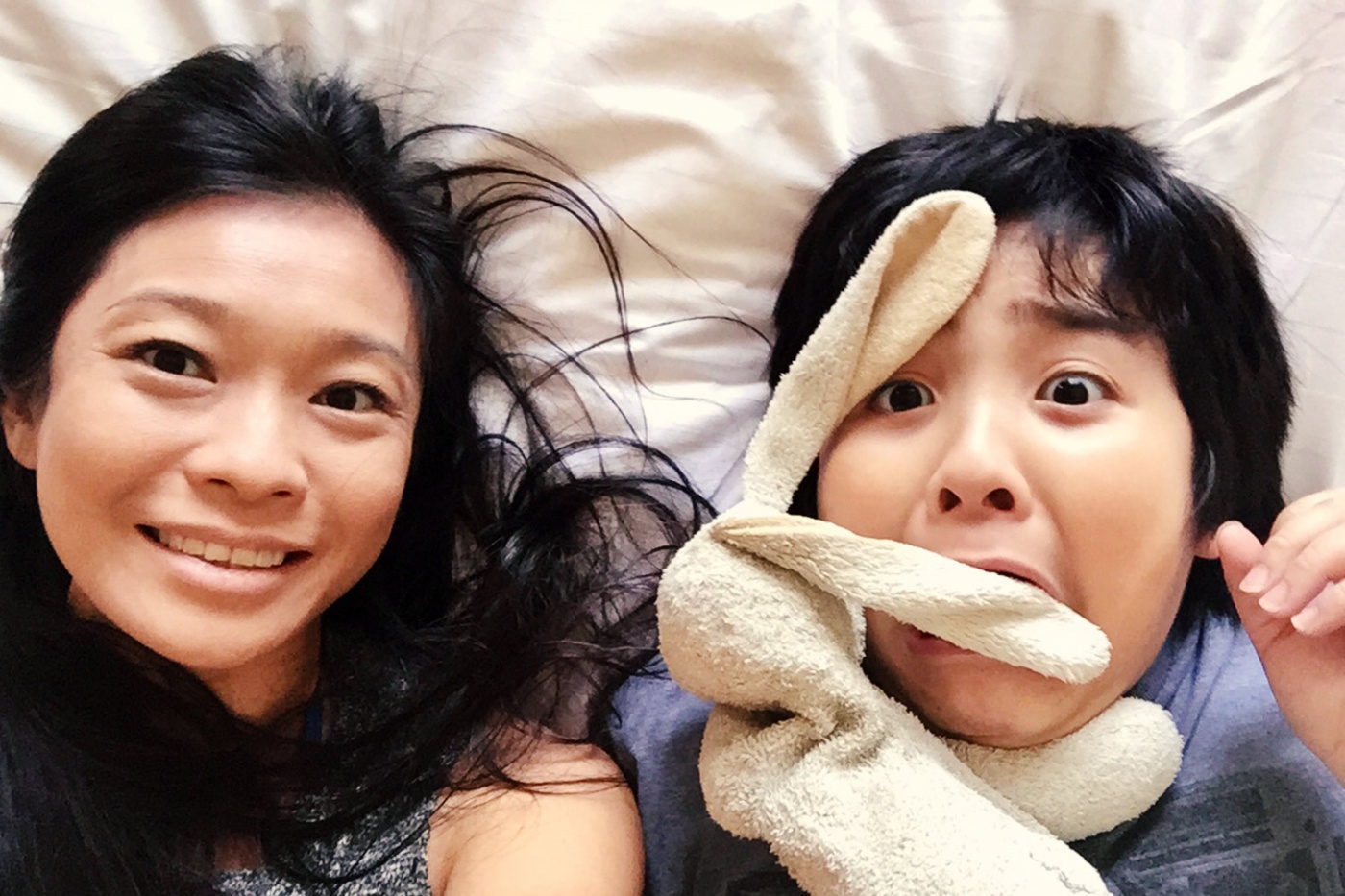Rediscovering Myself Through My Son’s Special Needs
“Dillon has autism.”
Those words lingered in the air as the doctor shared the diagnosis of my five-year-old. Shock, disbelief and anger, which is really fear masked in a different way, were the first of many emotions that shot right through me. When I was pregnant, people would ask, “What do you want—a boy or a girl?” And I always said, “It doesn’t matter, as long as the baby is healthy”. This, however, threw me into a loop.
My son was born by emergency caesarean at 38 weeks. Throughout pregnancy, I had worked right through and travelled up to the seventh month. I wasn’t particularly maternal then, but I melted the very moment he was placed in my arms. I finally understood what unconditional love was. Developmentally, Dillon seemed really healthy and was ahead of the curve in many milestones: the nurse noticed his vision had focused within 2 days of being born, he could hold his head up unsupported at 5 weeks, he flipped over at 10 weeks, and at 10 months, he was running.
But strangely, after 16 months, he developed bouts of anxiety that got more extreme over time in the form of acute panic attacks around strangers. Birthday parties, Christmas, Chinese New Year celebrations and gatherings were out of the question. One pre-school after another didn’t work out. He refused to integrate with the other children–in fact, he was terrified of them and would spend the time sitting in a corner. Like any parent, I began to worry if he would be able to cope with the world, long after his father and I were gone?
From ages two to five, Dillon couldn’t work with professional therapists due to his severe anxiety around strangers, so I became his de facto full-time home therapist and learnt cognitive behavioural therapy (CBT) to help him. A big part of CBT was understanding how the mind perceives a situation as a threat vs. the reality of it. And how the stories we tell ourselves about events in our lives make up a huge part of our state of being. These, in turn, influence our mental-emotional health.
In Dillon’s case, his perceptions were creating almost instantaneous, large floods of adrenaline, triggering his fight or flight responses. So what I had to do was to help him reframe everyday situations before, during and after they had happened. Usually half or more of his fears were figments of his imagination, and by changing his beliefs and interpretations of events, I managed to strengthen his coping skills. Eventually, with his panic attacks under control, he was able to get further support from language and occupational therapists. Being accepted by The Winstedt School was also a blessing because the school created a very special environment, where he felt safe to integrate with other children. It was like watching an “ugly duckling” realise that there were other adorable ducklings just like him—all unique and special in their own way—waiting to grow into swans.

Although Dillon’s anxiety became much more manageable, I knew that there still was a lot more work needed to help him live a well-adjusted, full life. I spent a lot of time reflecting hard on the mistakes I had made with him, especially before the diagnosis. After apologising to Dillon several times for pushing him too hard, for expecting too much and for not understanding his condition, I vowed to create a new parenting style that would work best for him—centred around these core beliefs:
1. If he developed healthy self-esteem and confidence, then his anxiety would go away.
2. Instead of being results-oriented, he needed to be praised for the effort and for any kind of improvement (big or small). The validation would make him believe in himself.
3. I would teach him to be in control of his life, to make better choices even at a young age, emphasising character and values. He would learn to take responsibility for his choices, too.
4. He would be encouraged to fearlessly try things in life, never be afraid of failure or be afraid of being judged by others.
5. Most importantly, I told him often, he was loved and appreciated no matter what.
I was happily stunned when a developmental delay specialist described Dillon’s improvements as “unbelievable”. He was able to look her in the eye and reply to her questions with ease. Beyond that, he could self-manage his homework and exam schedule, display a healthy amount of empathy to his teachers and friends, and his confidence increased significantly. He also took responsibility for occasions where he didn’t do as well academically because he hadn’t put in enough effort. So by self-reflecting and adjusting his attitude towards his school work, he was able to show consistent improvement in his grades. On occasion, he has even managed to achieve 100 per cent in topics like oral presentation and in mathematics.
Along my journey to find more techniques to help my son, an unexpected event in my life left me traumatised. For the first time, I experienced occasional panic attacks that reminded me of what my son had, when he was younger. Even though I masked them well, I knew what I was feeling inside. My rational, conscious mind was aware that the event lay in the past, but my unconscious mind was creating unnecessary fears. Recognising that fear was merely an acronym for False Evidence Appearing Real, I turned to hypnosis.
This led me to discover Rapid Transformational Therapy (RTT), the multi-award winning, hypnotherapy-based programme developed by Marisa Peer. Initially, I thought I would use the programme to overcome my personal challenge. However, many aspects of the approach reminded me of the years of work I had done with Dillon and the guiding principles (as described above)—only this time, the results were so much faster.
RTT also reminded me of the deep investigative and analytical work I did in management consulting. When a client comes to see me, the presenting issue in his or her life is usually the symptom. Using hypnosis in the first session allows us to get to the root cause, identify it, and then release blocked emotions and unconscious beliefs. By neutrally facilitating the session, the client creates their own interpretations and reframes the past, changing the limiting beliefs and the stories that are being unconsciously told, to turn his or her life around quickly.
After seeing many people of all ages and with complex issues achieved breakthroughs through RTT, I wanted to use the technique to help my clients overcome their personal or professional problems. Since then, one of my clients, a lady with a phobia of flying, managed to get on a flight unaccompanied two days later after her one and only session with me; another client of mine now deals much better with her panic attacks, so much so that she is free to get on with her daily life activities; another young client, who had suffered from depression, got so much better that she no longer needed further support after two sessions.
It seemed like a lifetime ago when I was devastated by my son’s diagnosis. I had to wrestle with my new identity, having resigned from my job to be a full-time caregiver, without a regular source of independent income.

Looking back now, it feels like a blessing. Without Dillon in my life, I wouldn’t have found this calling and my second career. My son was a gift in more ways than I could have ever imagined and a huge source of inspiration in my life. I am now certified as one of the programme’s advanced RTT Therapists, and globally, as one of their mentors and global trainers. Combining my experience in management consulting, human resources, coaching and RTT, I hold group coaching workshops for banks, corporate clients and start-ups to empower them with problem-solving techniques, build personal influence, increase communication skills, achieve change management and unlock growth mindsets.
“When life gives you lemons, make lemonade” is how the saying goes. I don’t like having too much sugar in my meals, so I’ve adapted the saying to, “When life gives you lemons, make lemon water—it’s nourishing, healing and good for you”. By adopting this mindset, I help clients be the best versions of themselves each day, regardless of what might be happening in their lives.


